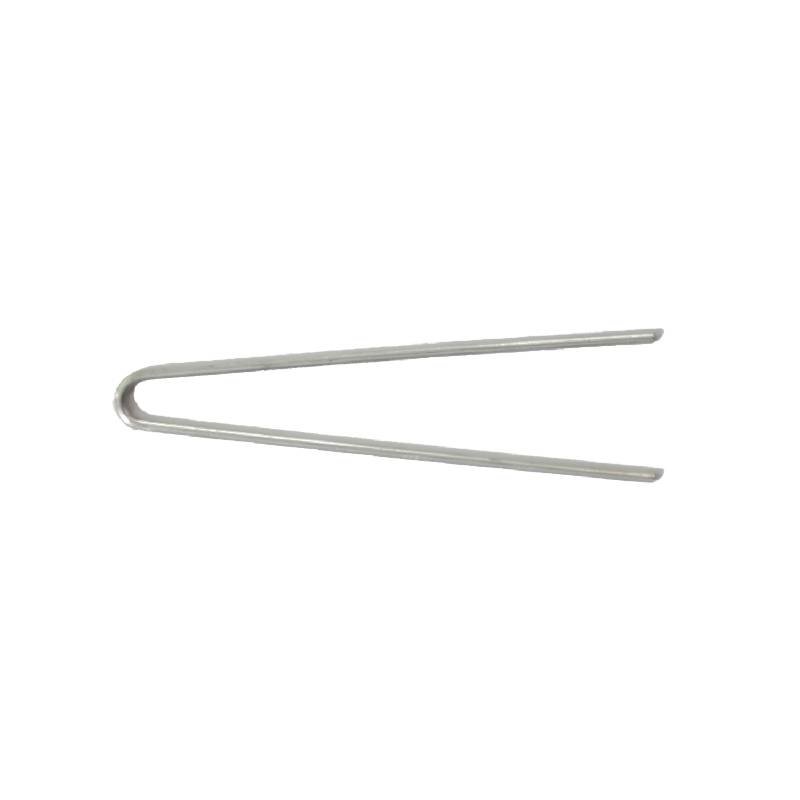8 penny common nail
Dez . 13, 2024 20:17
The Versatility of the 8% Penny Common Nail
In the world of construction and woodworking, the right fastener can make all the difference in the durability and aesthetic of a project. One such fastener that commonly graces the toolkits of builders and craftsmen alike is the penny common nail, particularly the 8% penny variety. These nails, often referred to as “8-penny nails” or simply “8d nails,” are celebrated for their size, strength, and versatility. Understanding their characteristics and applications can enhance one’s ability to complete various projects efficiently and effectively.
What is an 8 Penny Common Nail?
The term penny when referring to nails originates from the old British practice of pricing nails based on the number of pennies for which a certain quantity could be purchased. An 8-penny nail is approximately 2.5 inches long and has a diameter of about 0.131 inches. These nails are typically made of steel, although they may also come in galvanized or coated varieties to resist rust and corrosion. The common designation indicates they are a standard nail, designed for common construction purposes.
Characteristics
The 8 penny common nail is favored for several reasons. Its length and thickness provide a balance of strength and control, making it ideal for a wide array of applications. The sharp, often flat head allows for easy driving and minimal surface disruption, resulting in a clean finish. Additionally, the nails can be manually driven with a hammer or used with nail guns, enhancing the versatility and efficiency of their application.
One notable characteristic of these nails is their holding power. When used in the construction of wood structures, such as framing, sheathing, or decking, the 8 penny nail excels due to its ability to penetrate deeply into wood fibers while offering a solid grip. This is crucial in maintaining the integrity of a structure, especially in areas subjected to stress or movement.
8 penny common nail

Applications
The 8d nail's versatility makes it suitable for a variety of projects. In residential construction, carpenters often rely on the 8 penny common nail for framing wall studs, building roofs, and creating floor joists. Its length ensures that it penetrates through multiple layers of wood, providing a secure and sturdy hold.
In addition to framing, these nails are also essential in outdoor projects, such as fences and decks. When coated or galvanized, the nails resist rust wonderfully, allowing them to be used in exposed environments without compromising their holding power over time. Home improvement enthusiasts often use 8d nails for constructing sheds, pergolas, or other outdoor structures.
The 8 penny common nail is also invaluable in woodworking. Crafters and hobbyists appreciate using them for joining pieces of wood together, especially in making furniture or cabinetry. The ability to drive these nails cleanly into hardwood or softwood makes them a staple in any woodworker's arsenal.
Conclusion
In conclusion, the 8% penny common nail exemplifies both tradition and functionality in construction and woodworking. Its combination of strength, size, and versatility allows it to be effectively used across a vast array of applications—from framing and decking to fine woodworking projects. Understanding the best practices for utilizing these nails can enhance the quality of one’s work, ensuring strong, lasting connections in any structure.
For anyone involved in the craft of building or woodworking, the 8 penny common nail remains a reliable companion, blending simplicity with performance. Whether a professional contractor or a weekend DIYer, having a stock of 8d nails at hand can facilitate any project, big or small, ensuring that every structure stands the test of time with a sturdy foundation. So the next time you’re browsing through a hardware store or organizing your tool shed, remember the humble yet powerful 8 penny common nail—it may be small, but its impact is anything but!




















